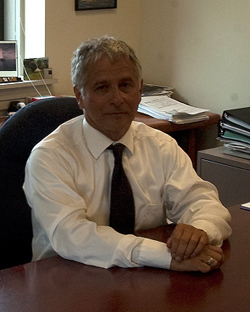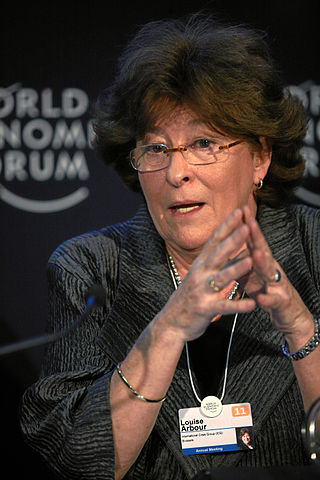REAL Women of Canada is a socially conservative advocacy group in Canada. The organization was founded in 1983.
Feminist legal theory, also known as feminist jurisprudence, is based on the belief that the law has been fundamental in women's historical subordination. Feminist jurisprudence the philosophy of law is based on the political, economic, and social inequality of the sexes and feminist legal theory is the encompassment of law and theory connected.The project of feminist legal theory is twofold. First, feminist jurisprudence seeks to explain ways in which the law played a role in women's former subordinate status. Feminist legal theory was directly created to recognize and combat the legal system built primarily by the and for male intentions, often forgetting important components and experiences women and marginalized communities face. The law perpetuates a male valued system at the expense of female values. Through making sure all people have access to participate in legal systems as professionals to combating cases in constitutional and discriminatory law, feminist legal theory is utilized for it all.

Andrews v Law Society of British Columbia, [1989] 1 SCR 143 is the first Supreme Court of Canada case to deal with the equality rights provided under Section 15 of the Canadian Charter of Rights and Freedoms. British law graduate Mark David Andrews challenged the validity of Section 42 of the Barristers and Solicitors Act contending that the Canadian citizenship requirement for being called to the bar violated Section 15 of the Charter.

Auton v British Columbia (AG), [2004] 3 S.C.R. 657, 2004 SCC 78 is a leading decision of the Supreme Court of Canada wherein the Court ruled that government funding for non-core medically necessary treatments is not protected under section 15(1) of the Canadian Charter of Rights and Freedoms.
Section 8 of the Canadian Charter of Rights and Freedoms protects against unreasonable search and seizure. This right provides those in Canada with their primary source of constitutionally enforced privacy rights against unreasonable intrusion from the state. Typically, this protects personal information that can be obtained through searching someone in pat-down, entering someone's property or surveillance.

R v Butler, [1992] 1 S.C.R. 452 is a leading Supreme Court of Canada decision on pornography and state censorship. In this case, the Court had to balance the right to freedom of expression under section 2 of the Canadian Charter of Rights and Freedoms with women's rights. The outcome has been described as a victory for anti-pornography feminism and the Women's Legal Education and Action Fund, but a loss for alternative sexualities.
The Anti-pornography Civil Rights Ordinance is a name for several proposed local ordinances in the United States and that was closely associated with the anti-pornography radical feminists Andrea Dworkin and Catharine A. MacKinnon. It proposed to treat pornography as a violation of women's civil rights and to allow women harmed by pornography to seek damages through lawsuits in civil courts. The approach was distinguished from traditional obscenity law, which attempts to suppress pornography through the use of prior restraint and criminal penalties.

R v Sullivan, [1991] 1 S.C.R. 489 was a decision by the Supreme Court of Canada on negligence and whether a partially born fetus is a person.
The history of feminism in Canada has been a gradual struggle aimed at establishing equal rights. The history of Canadian feminism, like modern Western feminism in other countries, has been divided by scholars into four "waves", each describing a period of intense activism and social change. The use of "waves" has been critiqued for its failure to include feminist activism of Aboriginal and Québécois women who organized for changes in their own communities as well as for larger social change.

Joseph James Arvay, was a Canadian lawyer who argued numerous landmark cases involving civil liberties and constitutional rights.
Beth Symes,, Queen's University alumna is a Canadian lawyer who fought the Canada Revenue Agency all the way to the Supreme Court of Canada in an unsuccessful attempt to deduct childcare expenses she incurred in order to earn income as a partner in her law firm.

Ann C. Scales was an American lawyer, activist, and law professor at the University of Denver Sturm College of Law from 2003 to 2012, where she taught in constitutional law, sexual orientation and the law, civil procedure and torts.
Marilou McPhedran is a Canadian lawyer, human rights advocate and politician. Since October 2016, McPhedran is a member of the Senate of Canada.

Ten Thousand Roses: The Making of a Feminist Revolution is a book written by Canadian journalist, political activist, and feminist Judy Rebick. The book is made up of the experiences of over 100 feminists in Canada from the 1960s through the 1990s.
The "comparator group" is an element that has been used in Canadian jurisprudence to analyze statutory human rights complaints and claims pursuant to section 15 of the Canadian Charter of Rights and Freedoms. Section 15 guarantees equality rights and the right to be free from discrimination on certain enumerated grounds.
Sunera Thobani is a Tanzanian-Canadian feminist sociologist, academic, and activist. Her research interests include critical race theory, postcolonial feminism, anti-imperialism, Islamophobia, Indigeneity, and the War on Terror. She is currently an associate professor at the Institute for Gender, Race, Sexuality and Social Justice at the University of British Columbia. Thobani is also a founding member of Researchers and Academics of Colour for Equality/Equity (R.A.C.E.), the former president of the National Action Committee on the Status of Women (NAC), and the director for the Centre for Race, Autobiography, Gender, and Age (RAGA).
Sherene Razack is a Distinguished Professor and the Penny Kanner Endowed Chair in Women’s Studies in the Department of Gender Studies, University of California at Los Angeles. As a feminist critical race scholar, her research and teaching focus on racial violence. She is best known for her contributions to feminist and critical race studies about discrimination against Muslim and Indigenous women in Canada, systemic racism in the Canadian justice system, and colonial violence against Indigenous peoples worldwide. She is the founder of the virtual research and teaching network Racial Violence Hub (RVHub). Formerly a Distinguished Professor of Critical Race and Gender Studies in the Department of Social Justice, the Ontario Institute for Studies in Education of the University of Toronto (1991-2016), she relocated to the United States from Canada in 2016.
Susan B. Boyd is a Canadian feminist legal scholar, the inaugural Chair in Feminist Legal Studies, and founder of the Centre for Feminist Legal Studies, and Professor Emerita at UBC. She conducts research in the fields of feminist legal theory, law and gender, law and sexuality, parenthood law, child custody law and law and social justice. In 2012, Professor Boyd was elected a Fellow of the Royal Society of Canada, in recognition of her international reputation as a leading socio-legal scholar.

Women in law describes the role played by women in the legal profession and related occupations, which includes lawyers, paralegals, prosecutors, judges, legal scholars, law professors and law school deans.
Mary Anne Eberts is a Canadian constitutional lawyer and a former University of Toronto Faculty of Law faculty member. She is a founding member of the Women's Legal Education and Action Fund (LEAF)





